Supply Chain Management: From Factory Floor to Real-World Impact
Master of Supply Chain Management alum Justin Gillebo drives innovation in renewable energy
Most of us only think about the supply chain when something goes wrong, such as online orders taking weeks to ship, price hikes on everyday purchases, or inventory shortages on essential goods.
However, according to Foster School of Business Master of Supply Chain Management graduate Justin Gillebo (MSCM 2018), the supply chain is the core of every business. “Supply chain is the backbone of every company and every industry,” he says. “If it’s done well, it’s invisible; if not, it’s obvious.”
A hands-on journey into supply change management
Gillebo’s introduction to supply chain management came while working on the factory floor at UPS in Seattle, where he helped move boxes into trucks. His interest blossomed when he was promoted to oversee a team. “For me, supply chain was the people. It was seeing communities start to build and grow because supply chains were successfully bringing in products, tools, and services.”
His passion for the field grew—along with his career. When he became a senior supply chain planner at Starbucks, he saw how supply chains could drive global impact. Still, he knew there was more to learn. As a first-generation college student, he wanted to formalize his understanding of the field, which led him to the Master of Supply Chain Management program at the University of Washington Foster School of Business. He knew it would provide the expertise and perspective needed to take his career to the next level.
After earning his Master of Supply Chain Management degree, Gillebo’s career advanced rapidly, leading to opportunities at Microsoft and Amazon. He later applied his expertise to pivot to the renewable energy sector. Today, he leads supply chain operations for Origis Energy.
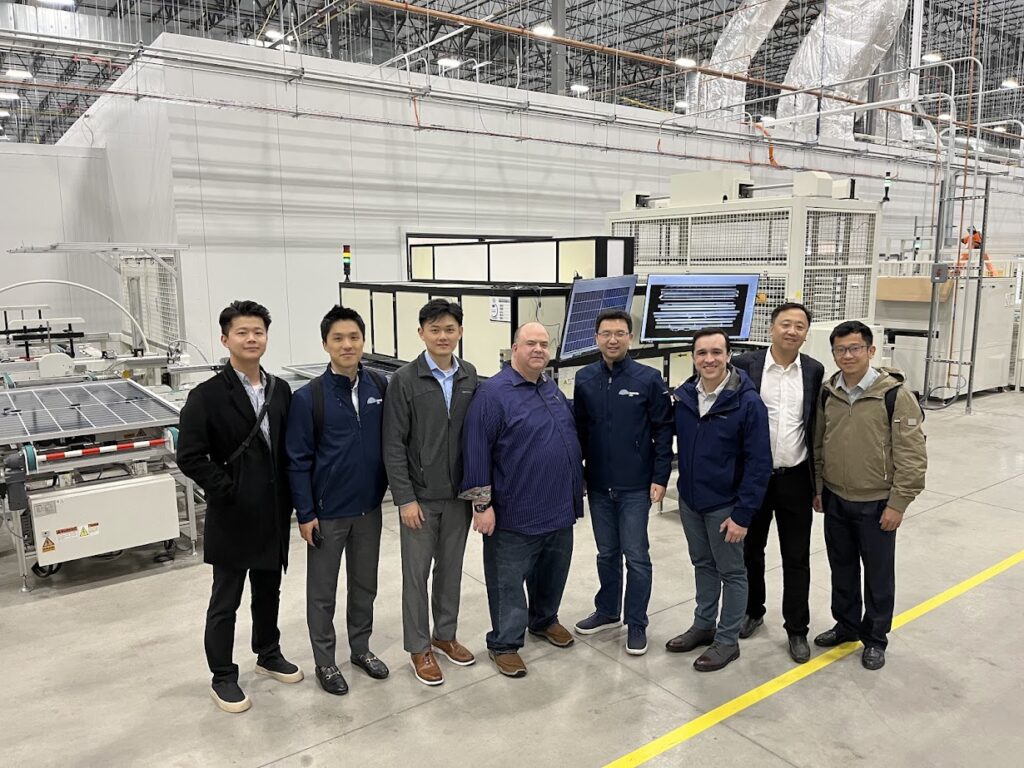
Learning beyond the supply chain classroom
Gillebo’s success wasn’t built on classroom learning alone. His most impactful lessons came from experiences that connected theory to real-world challenges. He recalls a pivotal moment in the Master of Supply Chain Management program when students had the chance to visit Audi’s manufacturing facility in Germany. “We got to see lean management principles applied on the factory floor and talk to the workers to understand the real-world challenges they face.”
The Foster School’s practical, hands-on approach allowed him to apply what he learned immediately. “It was a ‘learn-on-Saturday, apply-on-Monday’ experience,” Gillebo says. “We didn’t just learn in the classroom. We went out and applied what we were learning, and that’s where the program stood out for me. Seeing supply chain management in action solidified everything.”
This approach equipped him with tools he could take back to his roles at Microsoft and Amazon and sparked a broader approach to problem-solving. “Problems in the field are not solved in the boardroom,” his mentor used to say—a mantra that shaped his approach to management.
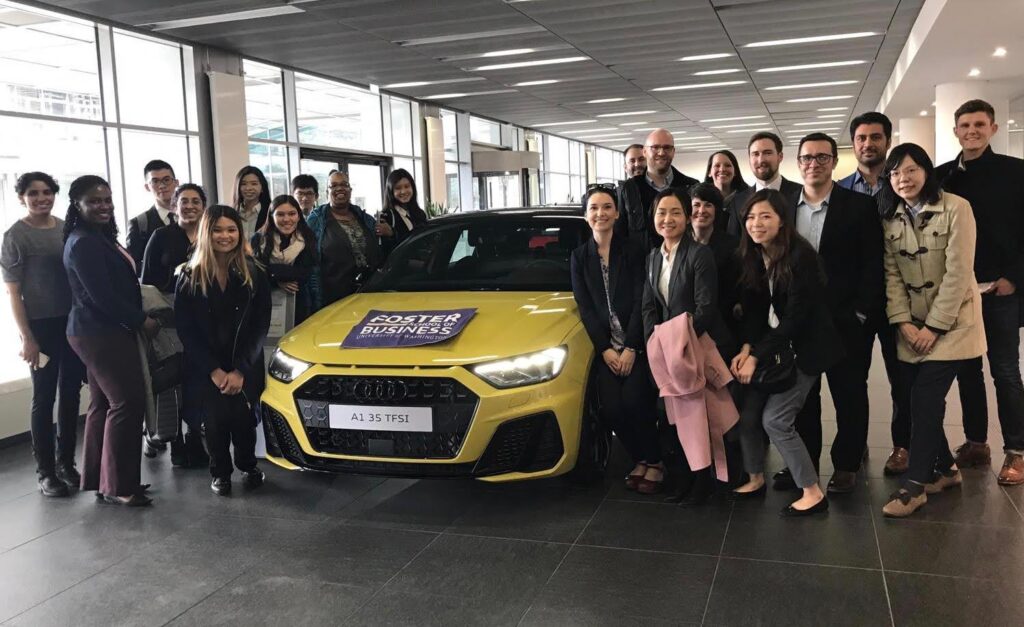
Empowering career pivots
Gillebo attributes much of his career growth and his ability to pivot into new industries to the mentorship and experiences he gained during the Master of Supply Chain Management program. “The combination of the academic insights and the real-world experience is the foundation that allowed me to take on more complex roles at an accelerated rate,” he says.
He also learned how to communicate effectively with executive teams. “The program developed those leadership skills to say, ‘OK, here’s a framework for how I think about these big problems in business,’ and the kind of executive-level leadership and presence to contribute to those leadership teams.”
Today, Gillebo credits the program for giving him the confidence to tackle complex supply chain challenges and the insight to lead teams effectively. Whether managing a team in renewable energy or collaborating with local utilities to provide clean energy to communities, his leadership is grounded in the principles he learned at Foster.
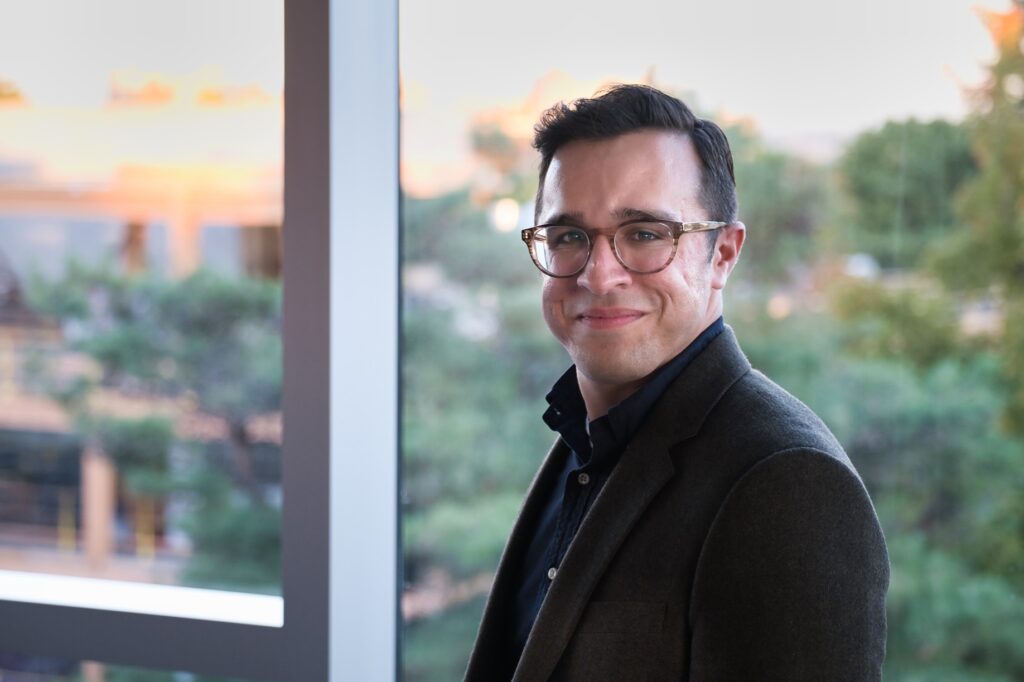
Seeing the human side of supply chain management
Having worked on the frontlines of supply chains, Gillebo highlights the human side of supply chain management. “For me, supply chain is the people. It’s the people building products on the factory floor, working in manufacturing. It’s seeing communities start to build and grow because supply chains are successfully bringing in products, tools, and services.”
This human element is central to his leadership approach. He emphasizes the need to understand how decisions made at the top impact the people on the ground. “When you shift a production schedule, it might mean people have to work seven days a week,” he says. “For someone working in a corporate role, it may just be a number that they’re trying to optimize because it’s the right business thing to do, but they may not see the human element behind it. So, knowing those people, sharing those stories – and having been one of them myself – greatly impacted how I approach supply chain. There’s a human element to every decision.”
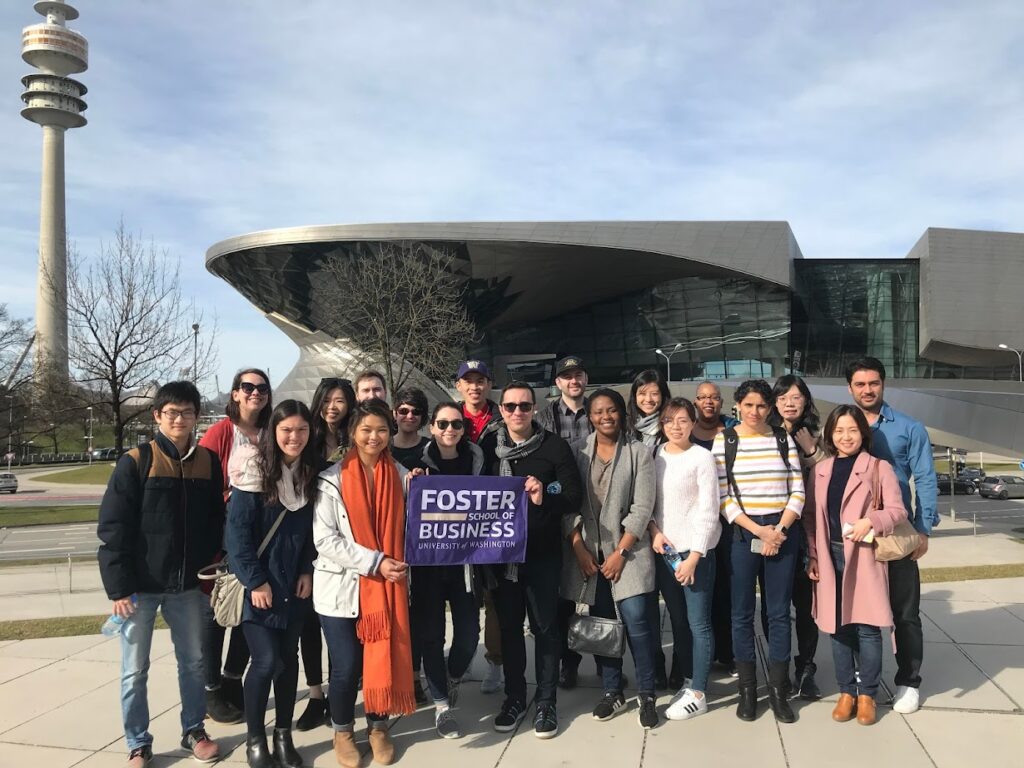
Shaping the revolution in renewable energy
Today, Gillebo oversees supply chain operations for Origis Energy, a renewable energy company. In this rapidly growing field, there are countless problems without established solutions, and the pace of innovation is fast. “Renewable energy is like where data centers were 10 to 15 years ago. The renewable energy sector is advancing at a very rapid pace. You see the regulatory side of renewable energy as well as the suppliers and the supply base evolving in real-time,” he says. “It’s an exciting time to be part of it, and there’s so much to shape.”
He enjoys knowing that his efforts are having a positive impact on the world. He says, “In renewable energy, we can use business to build a force for good.”
Gillebo credits Foster for giving him the confidence to tackle complex supply chain issues and the insight to lead teams effectively – in an industry that is radically different from technology. Whether managing a team or working with local utilities to provide clean energy to communities, Gillebo’s approach is rooted in the practical skills and strategic thinking he developed at Foster.
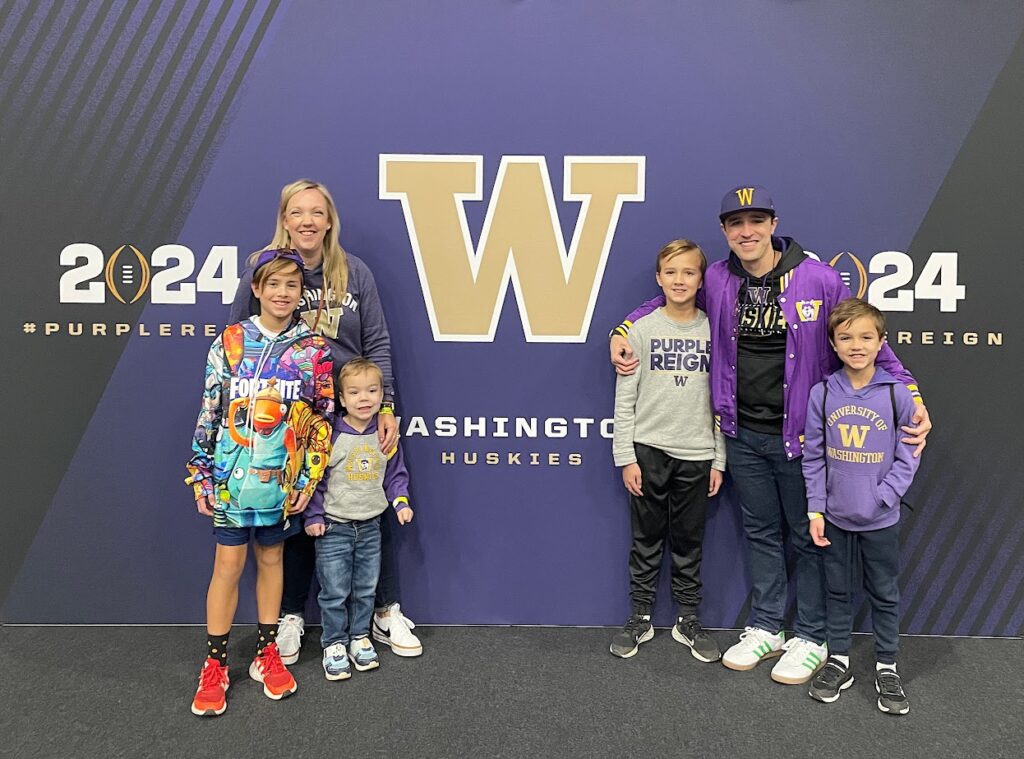
Working backward toward the career you want
Global disruptions—such as weather events and geopolitical shifts—have highlighted the critical need for robust supply chains. Companies are turning to supply chain experts to help them navigate these challenges, creating a high demand for professionals with specialized knowledge. Gillebo says a strong network is vital for career success as the field grows.
“The relationships I built through Foster’s Master of Supply Chain Management program have been just as valuable as the technical skills. Having a strong network of peers and mentors has helped me navigate career transitions and grow into leadership roles.”
For anyone considering a Master of Supply Chain Management, Gillebo offers this advice: “Fully engage with the opportunities the program will provide. Engage in the networking opportunities, dive deep, and engage with the program.”
He encourages students to reflect on their goals: Where do you want to be when you finish the program? Assess your current skills and identify gaps. Use the program to bridge those gaps, whether it’s technical knowledge or industry experience. Start with the end in mind and work backward to create a plan that ensures success.
“In supply chain management, there’s room for people with diverse backgrounds to build successful careers regardless of their experience at the time. You’re going to understand how to think about business. That’s one of the best things about the program: you get a good lens and framework for any business and industry.”
Above all, Foster’s Master of Supply Chain Management program empowers students to make the world a better place, Gillebo says. “The program wasn’t just about learning supply chain theory,” he says. “It was about developing the skills to make a real impact in the world.”
Learn more about the Master of Supply Chain Management here.
